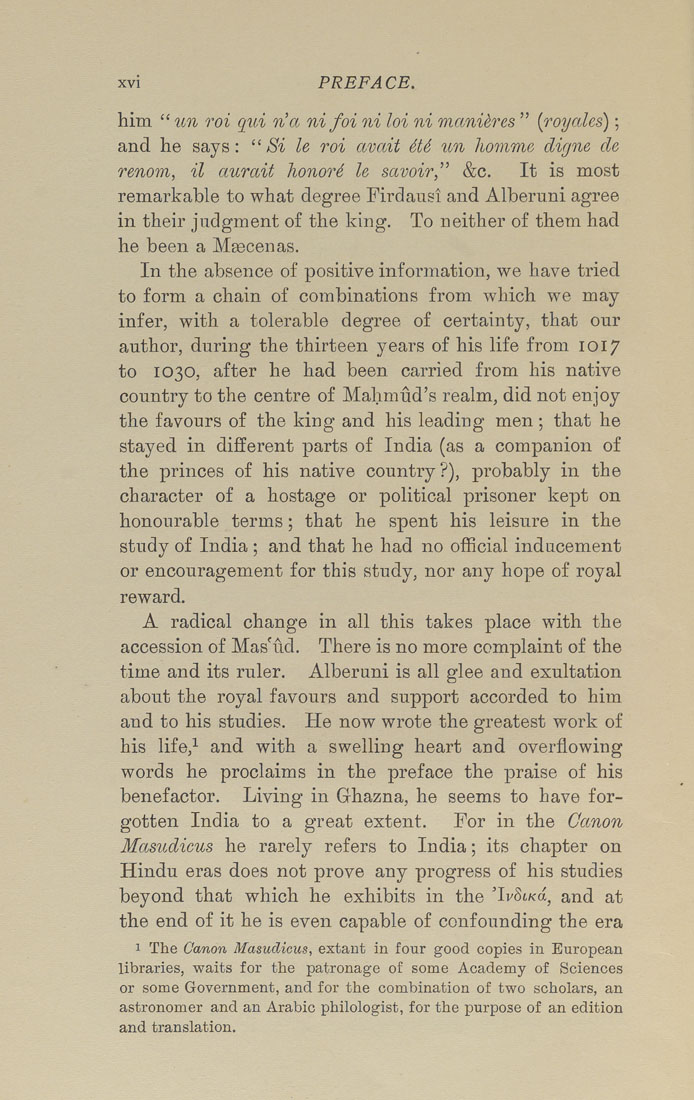Bīrūnī, Muḥammad ibn Aḥmad, Alberuni's India (v. 1)
(London : Kegan Paul, Trench, Trübner & Co., 1910.)
|
||
|
|
|
|
| Page xvi |

xvi PREFA CE. him " tin roi qui n'a nifoi ni loi ni manidres " [royales); and he says: "^■i le roi avait 6t6 un homme digne de renom, il aurait honori le savoir,'" &c. It is most remarkable to what degree Firdausi and Alberuni agree in their judgment of the king. To neither of them had he been a Mgecenas. In the absence of positive information, we have tried to form a chain of combinations from which we may infer, with a tolerable degree of certainty, that our author, during the thirteen years of his life from 1017 to 1030, after he had been carried from his native country to the centre of Mahmud's realm, did not enjoy the favours of the king and his leading men; that he stayed in different parts of India (as a companion of the princes of his native country ?), probably in the character of a hostage or political prisoner kept on honourable terms; that he spent his leisure in the study of India ; and that he had no official inducement or encouragement for this study, nor any hope of royal reward. A radical change in all this takes place with the accession of Mas'ud. There is no more complaint of the time and its ruler. Alberuni is all glee and exultation about the royal favours and support accorded to him and to his studies. He now wrote the greatest work of his life,^ and with a swelling heart and overflowing words he proclaims in the preface the praise of his benefactor. Living in Ghazna, he seems to have for¬ gotten India to a great extent. For in the Canon Masudicus he rarely refers to India; its chapter on Hindu eras does not prove any progress of his studies beyond that which he exhibits in the 'IvStKa, and at the end of it he is even capable of confounding the era 1 The Canon Masudicus, extant in four good copies in European libraries, waits for the patronage of some Academy of Sciences or some Government, and for the combination of two scholars, an astronomer and an Arabic philologist, for the purpose of an edition and translation. |
| Page xvi |







